
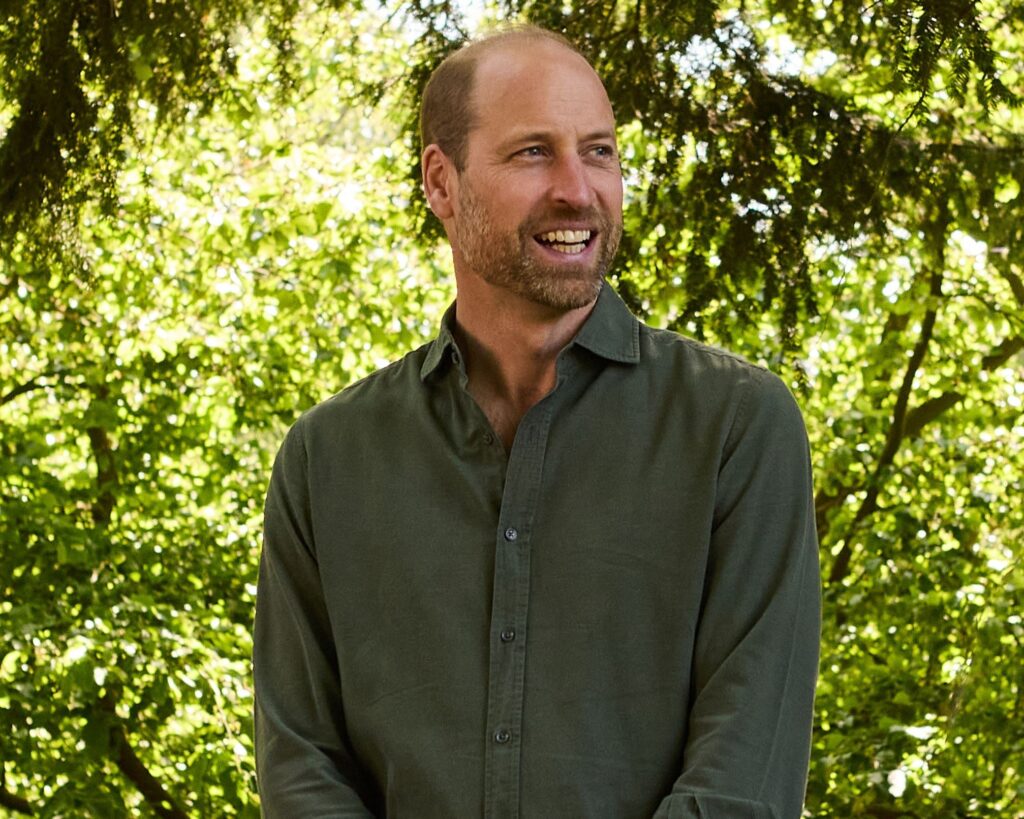
Prince William and United for Wildlife launch groundbreaking docuseries highlighting the work of rangers
Rangers are on the frontline of the protection and conservation of the natural world. Yet, their role is often fundamentally misunderstood and overlooked. A new six-part series, launched by Prince William and The Royal Foundation’s United for Wildlife, seeks to redefine understanding of rangers and the vital yet unseen work they do to protect our planet.
‘Guardians’ immerses viewers in the unique worlds of the incredible individuals who make huge sacrifices to safeguard the planet’s most threatened environments. From the snowy mountains of the Himalayas to the remote rainforests of Brazil, the series is filmed in some of the most breathtaking yet challenging locations that the Guardians call home, with each episode highlighting the pivotal role of these inspirational individuals.
Through his decades of work in the nature conservation sector and his ongoing work with United for Wildlife, Prince William has spent a great deal of time understanding and championing the work of rangers. He has seen first-hand the critical work they undertake and the myriad threats they face on a daily basis, with many tragically losing their lives whilst defending nature. The series, which was the brainchild of Prince William and to which he has voiced the trailer and individual episode introductions, aims to showcase these unsung heroes and highlight how their work impacts us all.
Prince William said:
I’ve had the privilege of meeting a number of rangers throughout my life and have seen firsthand the vital work they do. Yet their stories are often overlooked or misunderstood. The reality is that protecting our natural world has become one of the most dangerous jobs on the planet. We need to understand and recognise Nature’s Guardians, and the critical work they do.
The rangers we meet in this series are an inspiration to us all. Every day, they take huge risks as nature’s frontline of defence, standing between poachers and endangered species, supporting sustainable human-animal coexistence and fighting habitat loss.
As they work to protect our oceans, our forests, our plains, our mountains and biodiversity, they are also educating, community building and furthering science. These are the unsung heroes — the true Guardians of the natural world, defending nature and the future of the planet for all of us.
The sixth, and final, episode focuses on the Caru Indigenous land in Brazil and the powerful story of the women who are fighting to protect their land from increased illegal logging, poaching and wildfires. The Amazon is the largest rainforest in the world. It is home to a third of the planet’s terrestrial plant and animal species and stores billions of tonnes of carbon helping to regulate our global climate. However, this crucial ecosystem is at a tipping point and the devastating impact of increased deforestation and climate change has come into stark focus in recent history. Released on 27th June, the episode follows the Guerreiras da Floresta – or Forest Warriors – a group of Indigenous women formed from the Guajajara People who have lived in the Caru Indigenous Land in Brazil for hundreds of years. They have seen firsthand the impact that the demand for natural resources and illegal logging has had on the rainforest and risk their lives to protect their territory as well as their culture. Using cutting edge technology, the Forest Warriors risk their lives to patrol the land, locating illegal activity and alerting authorities.

Credit – The Royal Foundation / Zandland

Episode five, released on the 20th of June, follows an incredible team of rangers in Sri Lanka working to minimise threats of escalating human-elephant conflict. Chinthaka and his team bravely risk their lives rescuing and monitoring elephants which afford them crucial information to help to foster a more peaceful coexistence between wildlife and the communities. Sri Lanka is home to the world’s densest wild elephant population (5,000–6,000 strong but this once peaceful relationship between people and elephants is now strained by deforestation, farming, and shrinking habitats. In 2023 alone, 176 people and 470 elephants tragically lost their lives. Elephants are vital to the broader environment in Sri Lanka, acting as “ecosystem engineers,” and without this crucial species, the delicate balance of the local environment would unravel. Viewers learn of the emotional and technical efforts of ranger teams as they work to reduce harm to animals whilst minimising impact on humans, helping to save this much-loved species from extinction.
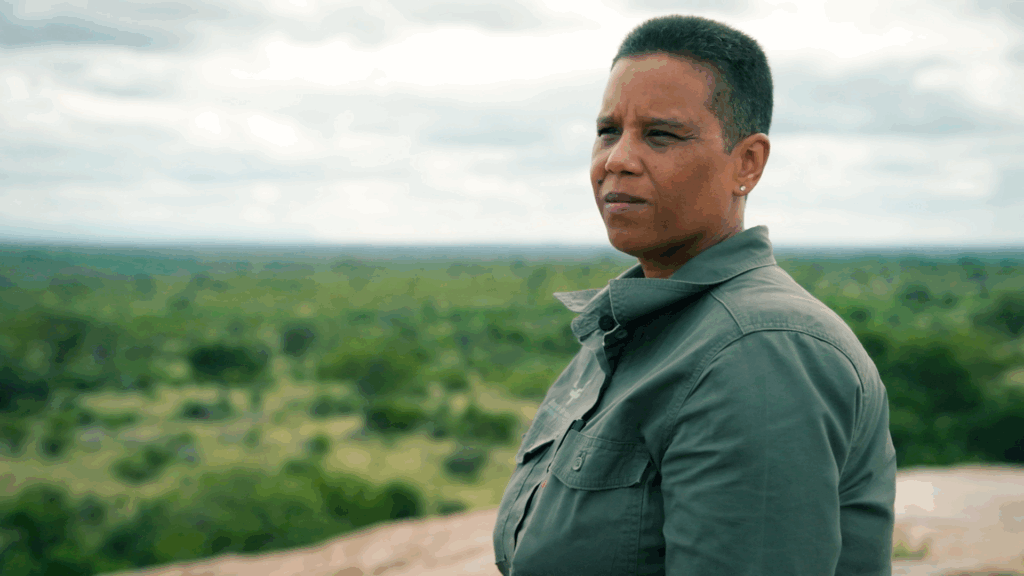
In the episode, released on the 13th June, audiences meet rangers working to protect critically endangered rhinos in South Africa. With just over 2,000 white and only around 250 black rhinos left in Kruger National Park, the poaching crisis could lead to the extinction of the species in the next few decades if left unchallenged. Through immersive film footage and interviews with the park’s first female Head Ranger, Cathy Dreyer, the episode follows rangers working on the frontline to protect, rescue and rehabilitate one of the country’s most threatened species. As well as highlighting efforts of rangers to safeguard rhinos from poachers, the film showcases those who are dedicating their lives to raising orphaned rhino calves who are tragically left behind. Sanctuaries such as Care for Wild, who are featured in the episode, are a crucial lifeline for these rhinos, offering specialist care and rehabilitation services.
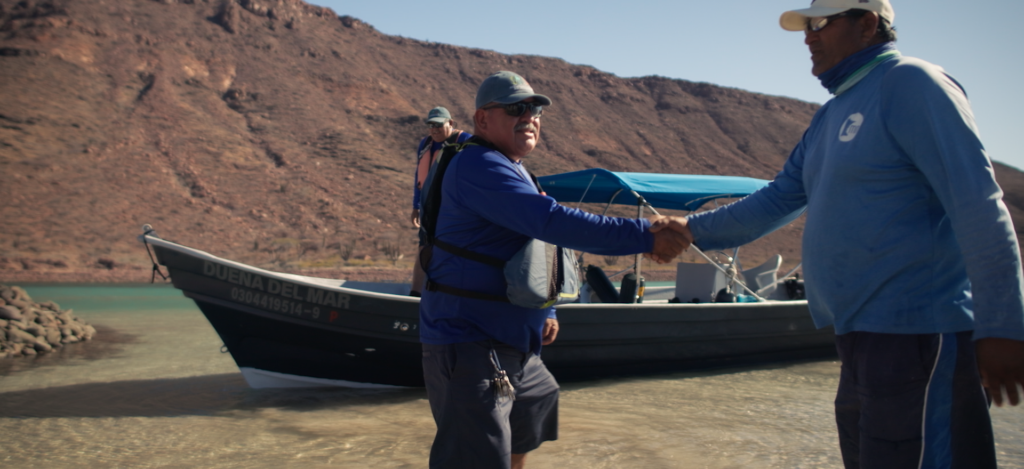
Released 6th June, ahead of World Oceans Day, the third instalment of Guardians follows Captain José Luis Cesena Calderon, once an illegal fisherman who is now one of the region’s most committed guardians. Mexico’s Sea of Cortez is one of the most biodiverse marine ecosystems on each, with over 900 species of fish – over 70 of which are endemic to the area. Although formerly known as the ‘worlds aquarium’, the last few decades of poaching and overfishing have devasted marine life and damaged the seabed. In this episode, we see how a group of civilian rangers are working to protect the Sea of Cortez from the threats of illegal fishing. Through the work of the citizen observer network, known locally as ROC, Captain José and his team not only actively patrol the area for illegal activity, but they are also working to build the trust of local fishing communities. The gripping episode shines a light on how rangers are working alongside local communities, and why these ties are so important to the success and endurance of conservation efforts.
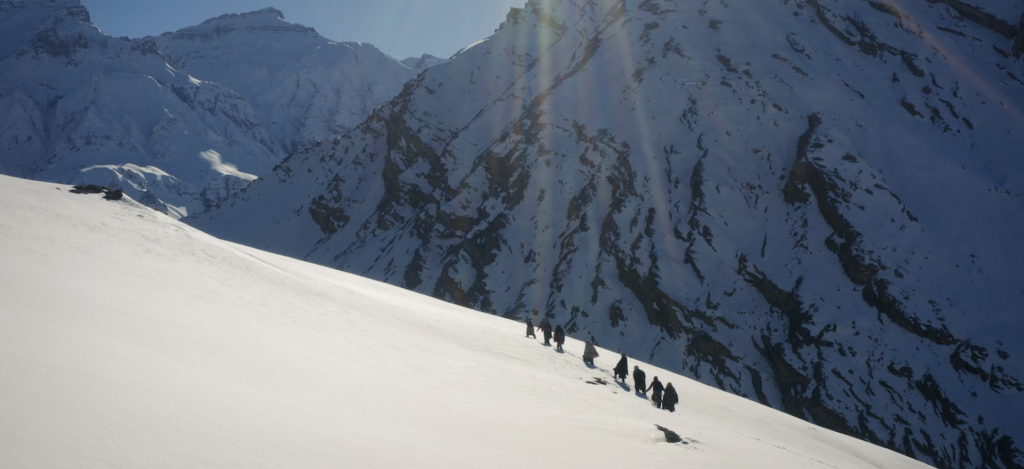
Episode two, released on the 30th May, follows ranger Kalzang Gurmet and his team in Spiti Valley (pictured right) who are risking their lives to save endangered snow leopards. For generations, communities in this part of the world have happily lived side by side with the native animals that call it home. However, recently an increasing number of the elusive snow leopards – known as the ‘Ghosts of the Himalayas’ – have ventured into human settlements hunting livestock due to a scarcity of pre in the world. Viewers of this episode have the rare opportunity to see an unfiltered glimpse of the incredible individuals dedicating their lives, and making huge sacrifices, in order to create a sustainable co-existence between snow leopards and local residents in these changing conditions. Through the rangers’ eyes, we see first-hand both the beauty of the Himalayan landscape which inspires the rangers’ commitment, as well as the danger protecting such an extreme location presents with its high altitude, cold temperatures and extreme weather events.
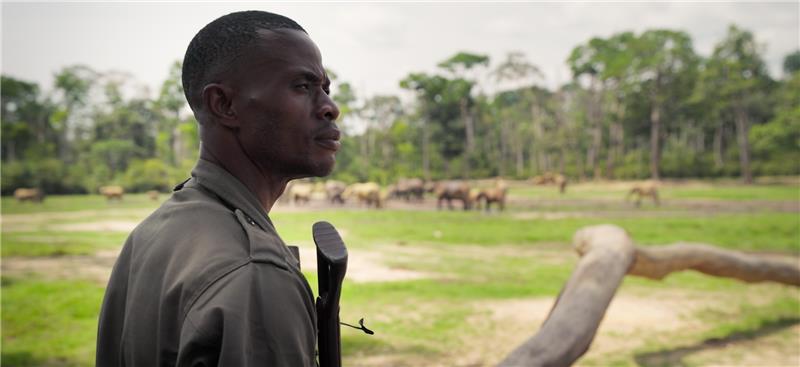
The first episode, released on Friday 23rd May, follows the story of Modiki Claver (pictured left), a reformed poacher who now dedicates his life to protecting the wildlife he once hunted in the Dzanga-Sangha protected area in the Central African Republic. Dzanga-Sangha is renowned for being home to the highest concentration of forest elephants and lowland gorillas in Africa and has seen these endangered species come under increasing threat from traffickers over the past 30 years. Through Modiki’s eyes, we follow daily patrols; his decision to walk away from poaching; and the hard-won passion and understanding he has developed of wildlife and the community that depends on it.
Dr Tom Clements, Executive Director of Nature Conservation said:
“The role of a ranger stretches far beyond just protecting wildlife. They are educators, community supporters, researchers and scientists, from governments, organisations, local communities and Indigenous Peoples. They preserve cultural heritage, and they help safeguard and regulate the sustainable use of our planets most precious natural resources.
“Without the critical work of these guardians, there is no guarantee of the future of thousands of animal and plant species, let alone food security, clean water, or a functioning, stable economy for the human population.”
Guardians will be released on BBC Earth’s YouTube and social channels from Friday 23rd May, with a gripping new episode launching each week. The series was co-produced with award winning studio ZANDLAND and each episode offers exclusive access, interviews and dynamic storytelling from rangers across the world. The series follows the remarkable stories from:
- Central African Republic and the breathtaking Dzangha-Sangha protected area, following a reformed poacher who now dedicates his life to protecting the wildlife he once hunted.
- The Himalayas, India where high in the Spiti Valley rangers are working to bring co-existence between the snow leopards known as ‘Ghosts of the Himalayas’, and local communities.
- Mexico’s Sea of Cortez once called ‘the world’s aquarium’ – and the story of a reformed illegal fisherman now working to protect this threatened ecosystem.
- Kruger National Park in South Africa where teams work round the clock to protect, rescue and rehabilitate critically endangered rhinos which face daily poaching threats.
- Sri Lanka where veterinary experts work tirelessly to rehabilitate elephants, leopards, and other wildlife, while balancing patrolling duties and mitigating human-elephant conflicts.
- Caru Indigenous Land, Brazil and the community-led fight to preserve their heritage and protect ancestral lands from environmental destruction.
Last November, United for Wildlife’s Nature Protectors initiative committed a five-year financial package set to provide 10,000 rangers across Africa with access to appropriate, affordable in-service and medical evacuation insurance cover.
You can watch all episodes of ‘Guardians’ on BBC Earth’s YouTube channel.
